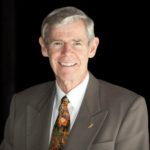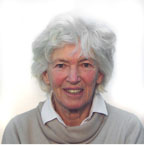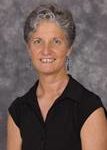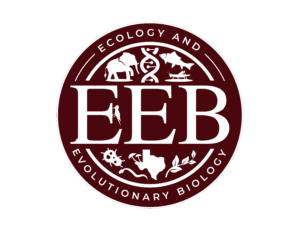Paul Gibbs
 Paul Gibbs is Professor Emeritus and former Associate Dean for Students at the University of Florida College of Veterinary Medicine in Gainesville, Florida. Dr. Gibbs’ professional focus is “One World: One Health” by focusing on the control and prevention of emerging and foreign animal diseases including those of zoonotic importance through research, education and policy development. Paul Gibbs graduated as a veterinarian from the University of Bristol in England in 1967 and subsequently focused his career on the epidemiology, control and prevention of emerging viral diseases. For nearly 10 years he worked at the Pirbright Institute in England on diseases such as foot-and-mouth disease, bluetongue, sheep pox, and rinderpest. In 1979, he joined the newly established College of Veterinary Medicine at the University of Florida. In Florida, apart from teaching, he has worked on several emerging problems and foreign animal diseases that threaten the USA; most recently West Nile virus encephalitis in horses and canine influenza. He established the University of Florida’s International Center and was Director from 1994 to 1999. Among other responsibilities, he worked on the Peace Process in the Middle East. Paul’s interest in emerging diseases extends to the developing countries, often the least developed. In many of these countries, educational standards are poor, children are malnourished and, not surprisingly, animal health and welfare is frequently given little attention. He has been an advisor to several universities in Europe, government and international agencies, and pharmaceutical companies. In September 2005 he was awarded the Wooldridge Medal by the British Veterinary Association and, in May 2012 he was awarded the Distinguished Service Award by the Florida Veterinary Medical Association for his work on Emerging Diseases.
Paul Gibbs is Professor Emeritus and former Associate Dean for Students at the University of Florida College of Veterinary Medicine in Gainesville, Florida. Dr. Gibbs’ professional focus is “One World: One Health” by focusing on the control and prevention of emerging and foreign animal diseases including those of zoonotic importance through research, education and policy development. Paul Gibbs graduated as a veterinarian from the University of Bristol in England in 1967 and subsequently focused his career on the epidemiology, control and prevention of emerging viral diseases. For nearly 10 years he worked at the Pirbright Institute in England on diseases such as foot-and-mouth disease, bluetongue, sheep pox, and rinderpest. In 1979, he joined the newly established College of Veterinary Medicine at the University of Florida. In Florida, apart from teaching, he has worked on several emerging problems and foreign animal diseases that threaten the USA; most recently West Nile virus encephalitis in horses and canine influenza. He established the University of Florida’s International Center and was Director from 1994 to 1999. Among other responsibilities, he worked on the Peace Process in the Middle East. Paul’s interest in emerging diseases extends to the developing countries, often the least developed. In many of these countries, educational standards are poor, children are malnourished and, not surprisingly, animal health and welfare is frequently given little attention. He has been an advisor to several universities in Europe, government and international agencies, and pharmaceutical companies. In September 2005 he was awarded the Wooldridge Medal by the British Veterinary Association and, in May 2012 he was awarded the Distinguished Service Award by the Florida Veterinary Medical Association for his work on Emerging Diseases.
Rosemary Grant

B. Rosemary Grant is Emeritus Senior Research Biologist in the Department of Ecology and Evolutionary Biology at Princeton University. She is interested in the diversity of individuals produced by the interaction between genetics, ecology, and behavior: how natural selection acts on this variation; the evolutionary response to natural selection; and the bearing this has on the process of speciation.
Working closely with Peter Grant, she has studied Darwin’s Finches on the Galápagos Archipelago for more than forty years. Her numerous publications include How and Why Species Multiply: The Radiation of Darwin’s Finches (with P.R. Grant, 2008), In Search of the Causes of Evolution: From Field Observations to Mechanisms (edited with P.R. Grant, 2010), and 40 Years of Evolution: Darwin’s Finches on Daphne Major Island (with P.R. Grant, 2014). She has received the Balzan Prize in Population Biology (with P.R. Grant), American Institute of Biological Sciences Outstanding Scientist Award (with P.R. Grant), The Royal Society Darwin Medal (with P.R. Grant), The Linnean Society of London Darwin Wallace Medal (with P.R. Grant), and Kyoto Prize in Basic Sciences (with P.R. Grant). She is a member of the Royal Society of London, National Academy of Sciences, American Philosophical Society, Fellow of the American Academy of Arts and Sciences, Royal Society of Canada, among others.
Maureen Donnelly
 Maureen A. (Mo) Donnelly is a Professor of Biology and Associate Dean for Graduate Studies in the College of Arts and Sciences at Florida International University (FIU). She is also a Research Associate at the American Museum of Natural History in New York City. Dr. Donnelly joined the FIU faculty in August, 1994, and her first laboratory was located on the Biscayne Bay Campus of FIU. She received Tenure and Promotion to Associate Professor in 1999, and moved to the University Park (MMC) campus in the Spring of 2002 to make way for the growing Marine Biology program at FIU. She was promoted to Professor in 2006. Her new laboratory has supported several students conducting research with amphibians and reptiles in south Florida and a variety of tropical locations. To date, she has mentored 7 PhD students and 16 Master’s students. She has published over 100 peer-reviewed papers and has co-edited two contributed books. She co-authored a field guide to the amphibians and reptiles of the La Selva Biological Research Station with her long-time collaborator Craig Guyer in 2005. Her research has focused on the ecology and evolution of the Strawberry Poison Frog, the amphibians and reptiles of Pantepui, and the ecology of defense in the poison frog Oophaga pumilio, and a variety of studies that deal with aspects of amphibian conservation. Mo became an Associate Dean of Graduate Studies for the largest College at FIU in the Fall of 2008.
Maureen A. (Mo) Donnelly is a Professor of Biology and Associate Dean for Graduate Studies in the College of Arts and Sciences at Florida International University (FIU). She is also a Research Associate at the American Museum of Natural History in New York City. Dr. Donnelly joined the FIU faculty in August, 1994, and her first laboratory was located on the Biscayne Bay Campus of FIU. She received Tenure and Promotion to Associate Professor in 1999, and moved to the University Park (MMC) campus in the Spring of 2002 to make way for the growing Marine Biology program at FIU. She was promoted to Professor in 2006. Her new laboratory has supported several students conducting research with amphibians and reptiles in south Florida and a variety of tropical locations. To date, she has mentored 7 PhD students and 16 Master’s students. She has published over 100 peer-reviewed papers and has co-edited two contributed books. She co-authored a field guide to the amphibians and reptiles of the La Selva Biological Research Station with her long-time collaborator Craig Guyer in 2005. Her research has focused on the ecology and evolution of the Strawberry Poison Frog, the amphibians and reptiles of Pantepui, and the ecology of defense in the poison frog Oophaga pumilio, and a variety of studies that deal with aspects of amphibian conservation. Mo became an Associate Dean of Graduate Studies for the largest College at FIU in the Fall of 2008.
Tyrone Hayes

Tyrone Hayes is a Professor of Integrative Biology at the University of California, Berkeley. Dr. Hayes focuses his work on the effects of steroid hormones on amphibian development and conducts both laboratory and field studies in the U.S. and Africa. He is interested in metamorphosis and sex differentiation of amphibians, as well as larval and adult growth and hormonal regulation of aggressive behavior. Dr. Hayes’s work addresses problems on several levels including ecological, organismal, and molecular questions. Most notably, his work on the effect of the pesticide atrazine on amphibian reproduction has gained widespread attention. Hayes earned his B.A. in Organismic & Evolutionary Biology from Harvard University and Ph.D. in Integrative Biology from the University of California, Berkeley. He held a postdoctoral appointment at the National Institutes of Health Cancer Research before becoming an Assistant Professor at Berkeley. In 2000 Dr. Hayes became the youngest tenured professor in his department.
Parviez Hosseini

Dr. Parviez Hosseini, senior research fellow at EcoHealth Alliance, focuses his work on studying vector-borne pathogens. As a mathematician and ecologist, Parviez uses his critical modeling skills to understand how diseases are transmitted from animal to animal and then oftentimes animal to human. Parviez earned his B.S. in Applied Math – Biology from Brown University and Ph.D. in Biological Sciences from the University of California Santa Barbara. He conducted his postdoctoral research at the Lab of Ornithology at Cornell University, and at Princeton University.


